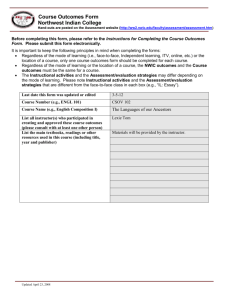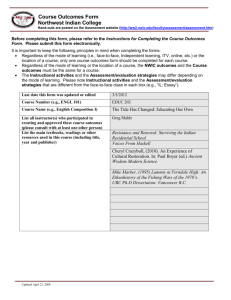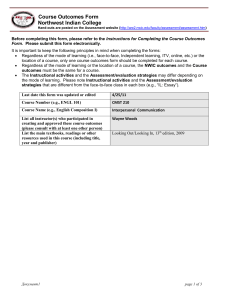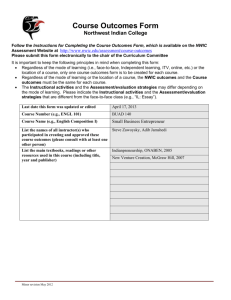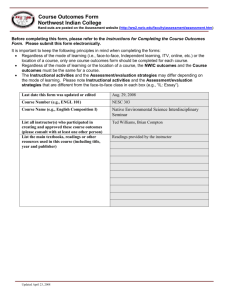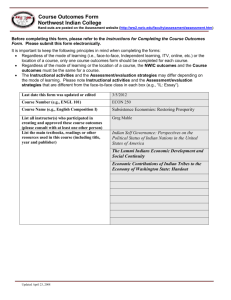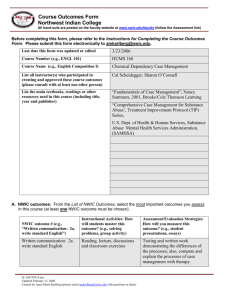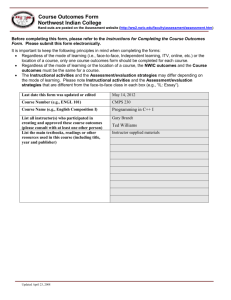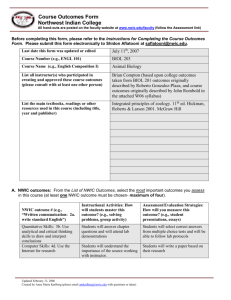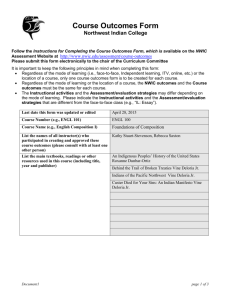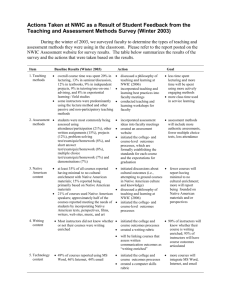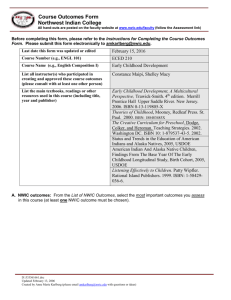ECON 203
advertisement
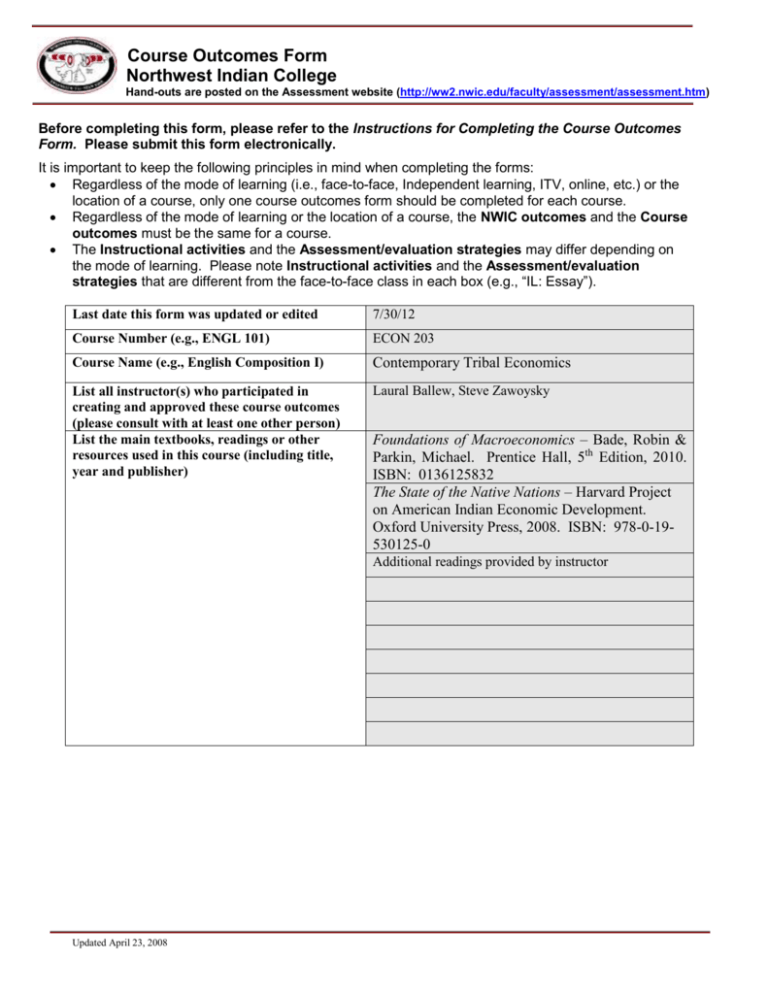
Course Outcomes Form Northwest Indian College Hand-outs are posted on the Assessment website (http://ww2.nwic.edu/faculty/assessment/assessment.htm) Before completing this form, please refer to the Instructions for Completing the Course Outcomes Form. Please submit this form electronically. It is important to keep the following principles in mind when completing the forms: Regardless of the mode of learning (i.e., face-to-face, Independent learning, ITV, online, etc.) or the location of a course, only one course outcomes form should be completed for each course. Regardless of the mode of learning or the location of a course, the NWIC outcomes and the Course outcomes must be the same for a course. The Instructional activities and the Assessment/evaluation strategies may differ depending on the mode of learning. Please note Instructional activities and the Assessment/evaluation strategies that are different from the face-to-face class in each box (e.g., “IL: Essay”). Last date this form was updated or edited 7/30/12 Course Number (e.g., ENGL 101) ECON 203 Course Name (e.g., English Composition I) Contemporary Tribal Economics List all instructor(s) who participated in creating and approved these course outcomes (please consult with at least one other person) List the main textbooks, readings or other resources used in this course (including title, year and publisher) Laural Ballew, Steve Zawoysky Foundations of Macroeconomics – Bade, Robin & Parkin, Michael. Prentice Hall, 5th Edition, 2010. ISBN: 0136125832 The State of the Native Nations – Harvard Project on American Indian Economic Development. Oxford University Press, 2008. ISBN: 978-0-19530125-0 Additional readings provided by instructor Updated April 23, 2008 A. NWIC outcomes: From the List of NWIC Outcomes, select the most important outcomes you assess in this course (at least one NWIC outcome must be chosen- maximum of four). NWIC outcome # (e.g., “Written communication: 2a. Write Standard English”) Written Communication: 2a. Write standard English Instructional Activities: How will students master this outcome? (e.g., solving problems, group activity) -Readings, discussions, and assignments Assessment/Evaluation Strategies: How will you measure this outcome? (e.g., student presentations, essays) -Assignments and tests -Economics Research Project Rubric -Research and deliver Economics paper and oral presentation Reading Skills: 6b. Extend their own vocabulary through reading. -Assigned research and readings -Quizzes and tests B. Course outcomes: In order of priority, list the most important other learning outcomes for this course that you assess (a maximum of 10). Other course outcomes: Complete the sentence – As a result of this course, students will be able to… Instructional Activities: How will students master this outcome? (e.g., solving problems, group activity) Assessment / Evaluation Strategies: How will you measure this outcome? (e.g., student presentations, essays) Differentiate between the study of microeconomics and macroeconomics. -Readings and discussion on ethical principles and applications -Quizzes and Tests Utilize microeconomic and macroeconomic performance indicators to evaluate the success of tribal economic development projects. -Readings, discussions, and cases -Case Study assignment -Written responses to case study assignment Analyze supply and demand curves in the context of a small business. -Readings, discussions, assignments and cases -Assignments, quizzes, and tests Describe the connections between tribal economic development and community well being. -Readings, discussions, cases, and assignments -Assignments, quizzes, and tests Updated April 23, 2008 C. Please list the NWIC outcomes and course outcomes from above on your syllabus. D. Please assess the NWIC outcomes and course outcomes, which are listed above, in your classes. Updated April 23, 2008
